John Cleese: Basil Fawlty would be bewildered by the country England has become – and so am I
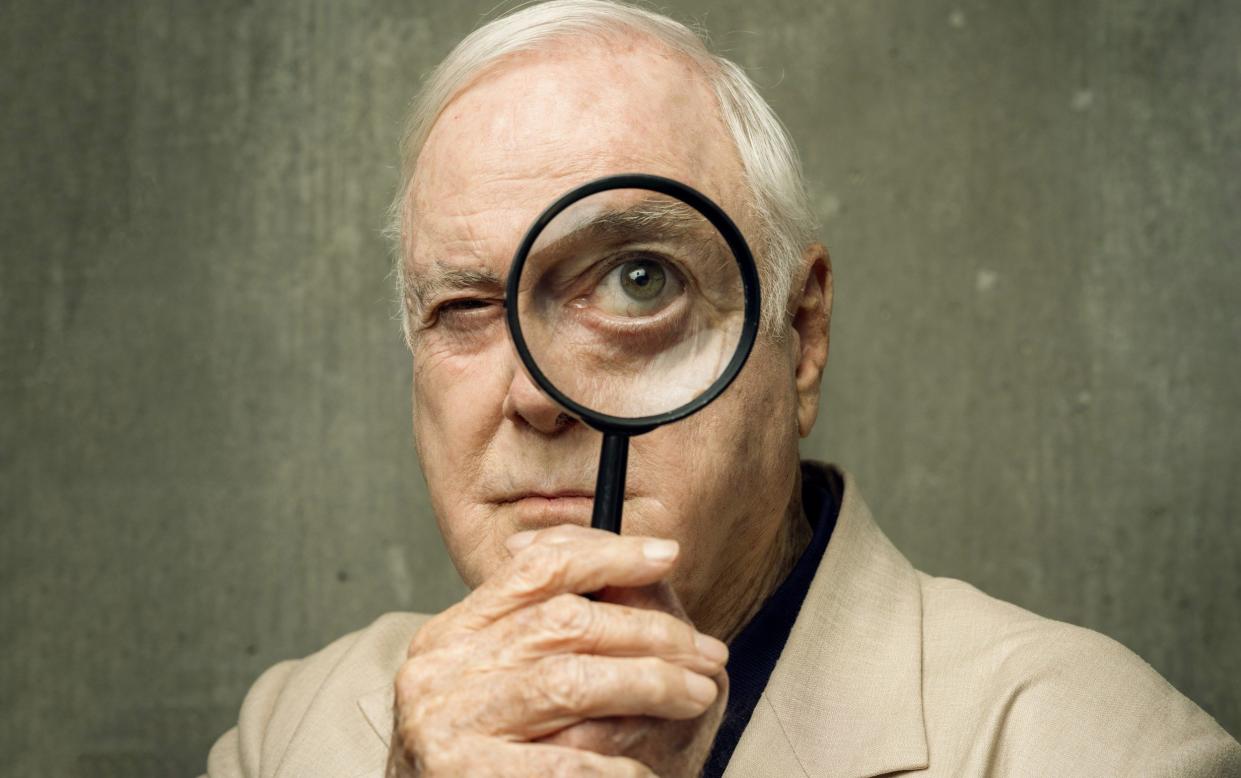
- Oops!Something went wrong.Please try again later.
- Oops!Something went wrong.Please try again later.
When I was growing up in the 1950s in Weston-super-Mare, England was largely a middle-class society. The values of the middle class were dictated from above and would work their way down the social ladder. My family may have been on one of that ladder’s lower rungs but we had middle-class values: although my father left school at 16, I never heard him mispronounce a word or make a spelling mistake. People tried to do their job well; they weren’t overly concerned with becoming rich, they just wanted enough money to get by, and live a good life.
Basil Fawlty – the bad-tempered Torquay hotelier in Fawlty Towers, the sitcom I created with Connie Booth in 1975 – is very much a product of that lost middle class. As so many people in this country were, he is a small-c conservative who dislikes change. He grew up during the Second World War and is obsessed with the fact that we beat Hitler. Yet, by the time we meet Basil in the 1970s, England had diminished as a country and, amid economic stagnation, lost its place in the world. Everywhere you looked, revolution was afoot, from multiculturalism to feminism, and the England Basil lives in is no longer the country it was.
I sometimes feel this about England, too. When I look at our country today I yearn for a return to what seemed to be a happier, friendlier, calmer, more ironic culture. I remember an England where everyone was extremely polite, when people were doing their best, and when life seemed relatively simple.
But in truth, when I created Basil Fawlty I was just trying to be funny, to come up with an awful person who is completely unsuited to running a hotel. People think he is a snob but really he’s just desperately trying to keep up with the Joneses. Reputation is hugely important to him. Most of the time he behaves the way he does because of the immense pressure he’s under. He is also fantastically repressed: he comes from that generation, of which my father was also part, in which you mustn’t show any weakness. You have to bottle it up.
He has this need to control everything, but he is also aware that he can control very little – and he is constantly frustrated by that. What makes him such a deeply loved character is that people have sympathy for him, they can see that he is trapped. And they understand that almost everything he does is motivated by his terror of Sybil (played on screen by Prunella Scales), with whom he is stuck in a terrible marriage. The tragedy is that you feel he was quite an attractive man at one point.
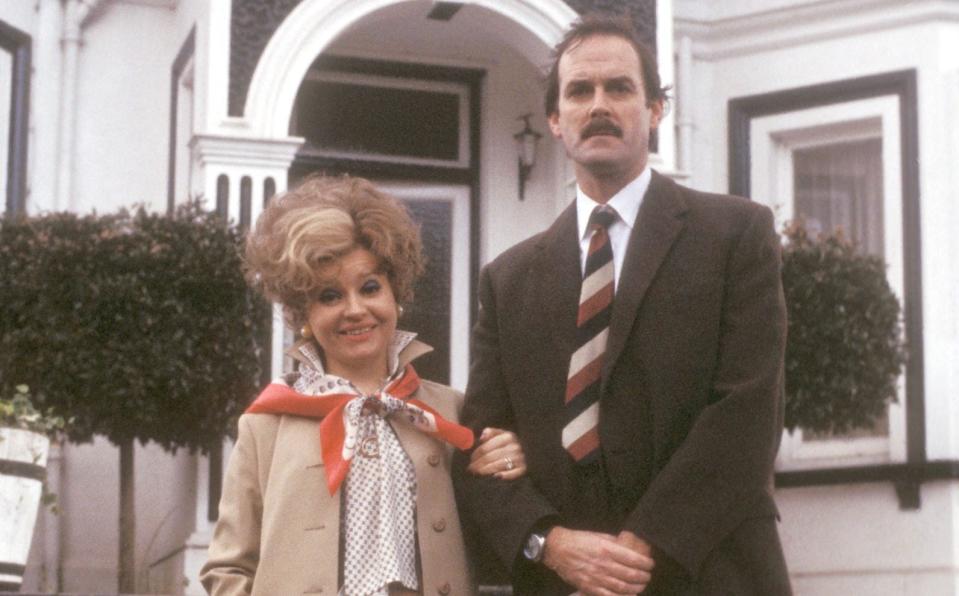
Connie – who also played the maid Polly in the original series – and I only wrote two series of Fawlty Towers and then stopped. As far as I was concerned it was very good and we had completed it; no need to write another series or return to it again. But then, around 2015, I sold the stage rights to the producer Phil McIntyre. I adapted three episodes from the original series – “The Germans”, “The Hotel Inspectors” and “Communication Problems” – into a single play and, in August 2016, Fawlty Towers Live was staged in Australia. We wanted to test it out before putting it on over here and for one reason and another – including Covid – it’s now arriving in the West End with an incredibly talented new cast and opens next week.
We haven’t felt much need to update the script: except to cut a speech from “The Germans” in which, while describing an England v India cricket match to Basil, long-term guest Major Gowen makes reference to w--- and uses the N word. At the time, in 1979, everyone knew that it was the attitudes themselves that were the butt of the joke, but we’ve taken this bit out anyway because it’s not worth the trouble. But we haven’t changed much else and we’ve added a finale joining the three stories together.
In some respects you could argue that the sitcom was ahead of its time. For instance, Basil, who is simply not up to the job of running the hotel, is surrounded by two very competent women who are. Both Sybil and Polly can run rings around him. We didn’t see Polly as the attractive one, but as the voice of sanity. Someone once said she is Basil’s Laertes – the only character in whom he can confide.
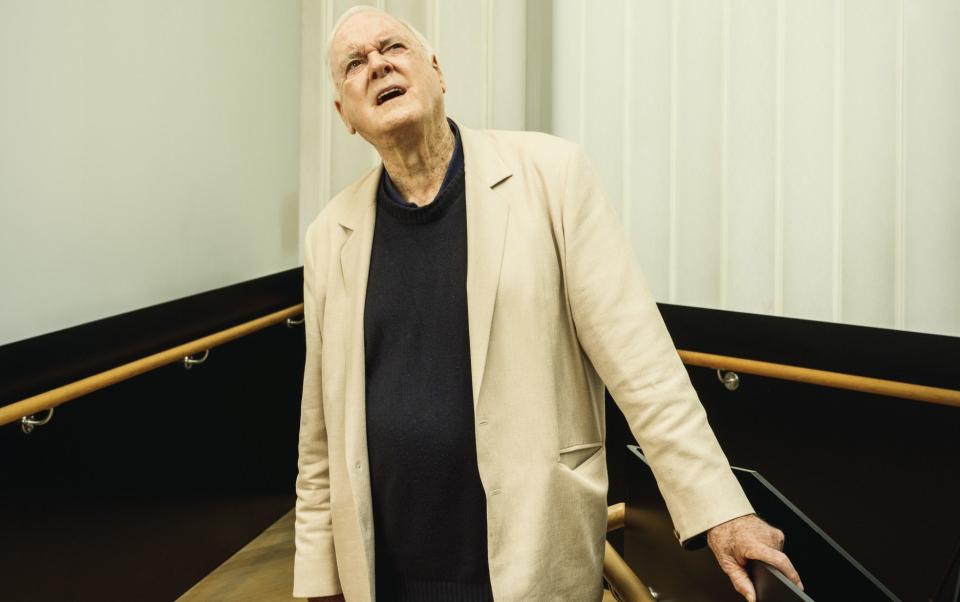
Growing up, I was always puzzled by the fact that everything was done by men. In 1972, when I founded my production company Video Arts, I worked closely with a female producer who effectively did everything, so I got used to working with women on a daily basis.
As for the Spanish waiter Manuel, whom Basil treats disgracefully, often by kicking him up the bottom, he came out of my love for Buster Keaton and Charlie Chaplin. The point about the “slap stick” that gives that style of physical comedy its name is that it sounds as though you’ve hit someone hard but you haven’t. People might today accuse Basil of behaving badly towards Johnny Foreigner, like some sort of hangover from colonial times, but really Manuel reflects the fact that, in the 1970s, for the first time there were quite a lot of European waiters in English restaurants and, for quite a while, you’d be lucky to get what you ordered. Manuel was simply a character with whom there could be constant misunderstandings and I’ve always found misunderstandings to be very funny. Perhaps I laugh at them so much because on one level I’m frightened by a lack of communication.
In comedy, context is everything: part of the problem with humour today is that people have lost sight of that. Some people still think “The Germans” is controversial because of the scene in which Basil imitates the Nazi goose-step, but the only people who have never complained about that episode are the Germans themselves. They know the comedy is never at their expense. Those who do take exception to this episode also criticise the moment in the hospital early on when Basil jumps back on encountering a black doctor. I pinched that from WC Fields, because I thought it was funny. The point of that particular moment is that we are all frightened by whatever is unfamiliar. It’s Basil’s naivety that makes you laugh.
But when people get mired in ideas about comedy and victimhood, they stop thinking. They lose sight of those distinctions of context. I’ve recently been working on a stage show of the 1979 Monty Python film Life of Brian, which we’re hoping to open in London next year. When we had a read-through in America last year, some of the actors objected to a scene from the film in which Eric Idle’s character says he’s going to become a woman. They said, “We can’t include this scene!” To which I said “Why not? It has amused people for 40 years…” No one was offended until a couple of years ago.
I’m all for trigger warnings that help people of a nervous disposition avoid comedy that they will find offensive, but I don’t think it should ever be cancelled – as UKTV (owned by the BBC) tried to do in 2020 by removing “The Germans” from their streaming service, until I complained – just because people who are too literal-minded to understand irony and sarcasm and metaphor say it should. Those people shouldn’t be allowed to dictate to those who do understand these things whether a comedy is enjoyable or not.
Another challenge facing comedy these days is that anyone determined to make something good has got to have a bit of spine. When Hugh Carleton Greene was director general of the BBC in the 1960s, he was asked about the issue of the Corporation’s comedy broadcasts offending viewers. To my delight he replied “Yes, but surely only those that one would wish to offend”.
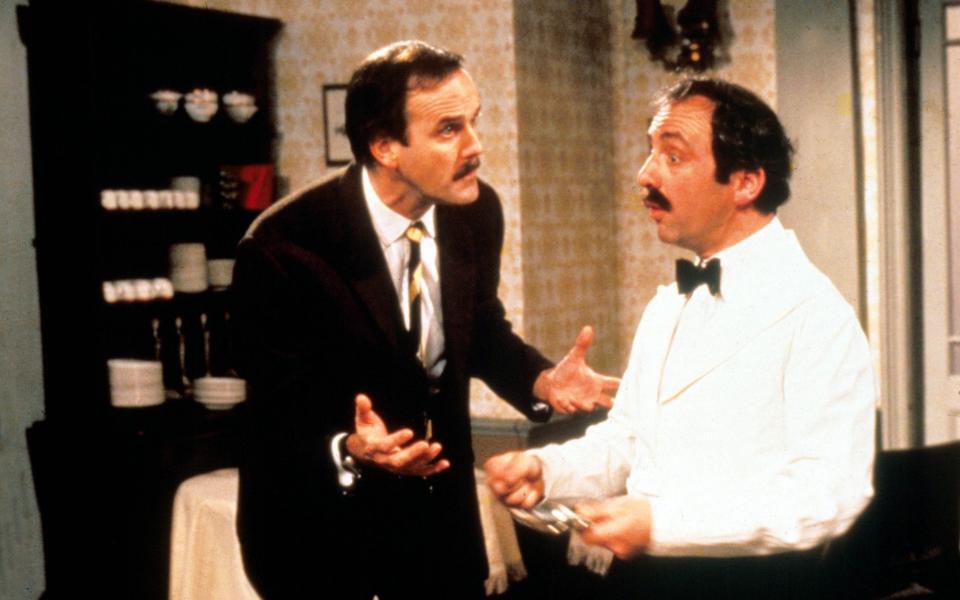
You wouldn’t get anyone saying that now. These days it’s almost mandatory that everyone gets offended by one thing or another, but it doesn’t breed in you a good state of mental health. A friend of mine who suffered greatly from depression recently underwent cognitive behavioural therapy which is all about reframing negative opinions, changing your mindset. But the extreme woke believe the opposite to this: that whatever you feel about something is entirely valid and should never be questioned. Which basically means Freud was wasting his time.
In the 1990s, the BBC turned into a bureaucracy. Bureaucrats don’t understand creative thinking and they don’t understand how to manage creative people. In the old days, the people running departments were people who had made programmes of their own. It makes me think of the story of the philosophy professor who decided he wanted to learn how to swim. So he bought some trunks and a book on how to do it, went down to the river, read the book and then said, “I know how to do it now, I don’t need to get into the water.”
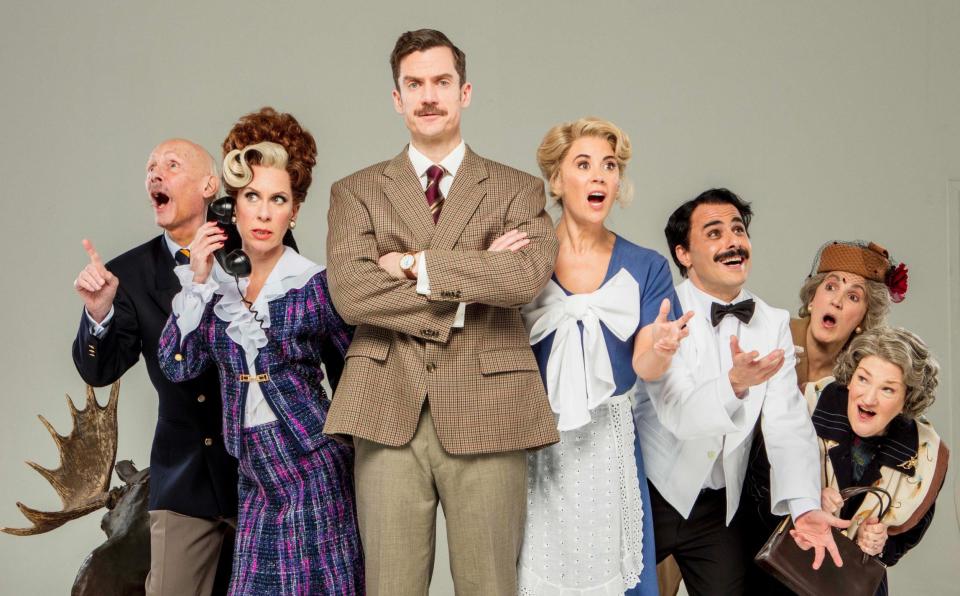
Today you get people who have never acted, never directed, never written, being put in charge of people who can do those things. It happened to my fellow Python, Terry Gilliam, who had his Old Vic production of Into The Woods cancelled in 2021 when people associated with the theatre disagreed with some of the things he had said in the past. It had nothing to do with the work he was going to do there. It was absurd.
In many ways, I think Basil would be even more of a fish out of water in today’s world than he was in the 1970s. A lot of the so-called woke attitudes of today are about being kind and inclusive – and who is going to disagree with that? But Basil would find things like the proliferation of call centres maddening, and certain issues, such as trans women being allowed to compete in female sports, bewildering. I know he would, because I do, too.
But in other respects, despite being more than a bit old-fashioned and very English, of course, Basil is universal. His Englishness is to do with trying to remain calm and not managing to do so. Although anger itself isn’t funny, repressed anger is very funny. In England becoming angry is considered a loss of control and because Basil can’t be direct with his guests or others, he tries to score points in other ways. The English middle classes love Basil because they recognise in him that inability to assert oneself without resorting to anger, and the sneaky things to which you are forced to resort in order to deal with that situation.
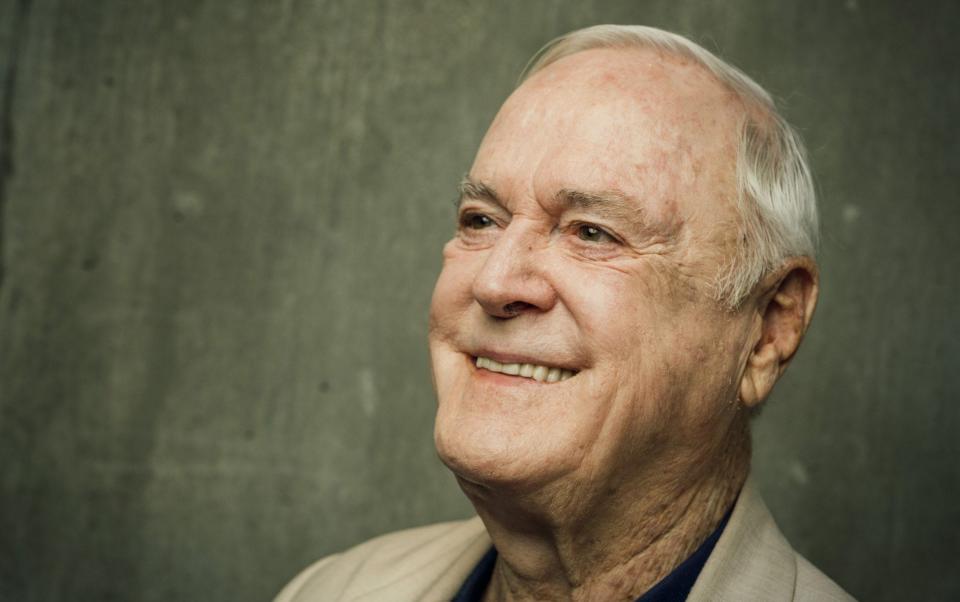
As well as the stage show, I have also been writing a new TV version of Fawlty Towers with my daughter Camilla, which I’m hoping to return to later this year. It’s a modern update in which Basil (played by me) goes out to the Caribbean where his long-lost daughter (played by Camilla) is a hotelier and wants a bit of help. But he will still be repressed and trapped. That’s his condition. In the truest line Basil ever delivers in Fawlty Towers, both on screen and now on stage, we find him in dialogue with himself:
“Whoosh! What was that?”
“That was your life, mate.”
“Oh, that was quick. Do I get another?”
“Sorry mate, that’s your lot.”
That rings as true today as it did the day I wrote it, half a century ago. Life’s too short not to laugh.
Fawlty Towers: The Play opens at the Apollo Theatre, London W1 (FawltyTowersWestend.com) on May 4

